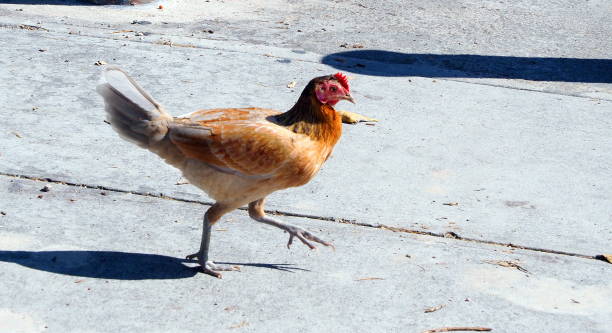The Resurgence of Urban Chicken Keeping: A New Chapter in Pet Ownership
Introduction: In this burgeoning era of sustainable living, a surprising trend has emerged in urban settings. More and more city dwellers are taking up chicken keeping as a part of their daily lives. Let's delve into this intriguing practice and explore its impacts on pet care and urban ecology.

Background: The Roots of Urban Chicken Keeping
Urban chicken keeping isn’t a novel concept. During both World Wars, city residents were encouraged to keep chickens as a source of fresh eggs. However, the practice dwindled with the advent of modern supermarkets. In recent years, this trend has resurfaced, aligning with growing interest in organic food and sustainable living.
Current Scenario: The Cluck of the Town
Today, urban chicken keeping is gaining popularity worldwide. Many cities have revised their zoning ordinances to allow residents to keep a limited number of hens. Touted as a means to reduce household waste and provide fresh, organic eggs, this trend is transforming urban backyards into miniature farms.
Market Impact and Financial Implications
The growing fascination with urban chicken keeping has spurred the demand for chicken coops, feed, and healthcare products. The market for urban chicken supplies is estimated to grow by 3.3% annually till 2025. A basic chicken coop costs between $200 and $500, with prices varying based on size and features.
The Science Behind Urban Chicken Keeping
Contrary to popular belief, chickens aren’t mere egg-laying machines. They display complex behaviors, have distinct personalities, and can form bonds with their human caretakers. Research indicates that chickens can understand object permanence, a cognitive skill previously attributed only to primates.
Balancing the Benefits and Challenges
Urban chicken keeping provides numerous benefits, including access to fresh eggs, natural pest control, and an educational experience for children. However, it also presents challenges, such as potential noise and odor issues, and the risk of attracting predators. Responsible ownership involves balancing these aspects while ensuring the welfare of the chickens.
In conclusion, urban chicken keeping is more than a fleeting trend—it’s a lifestyle choice that reflects a societal shift towards sustainability and self-reliance. Despite its challenges, the practice offers tangible rewards and deepens our connection with nature, even within the concrete confines of city life.





